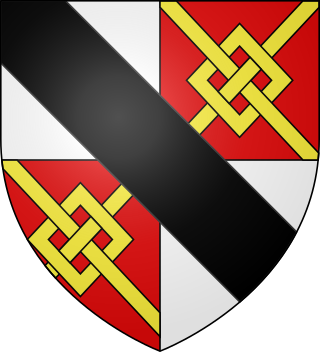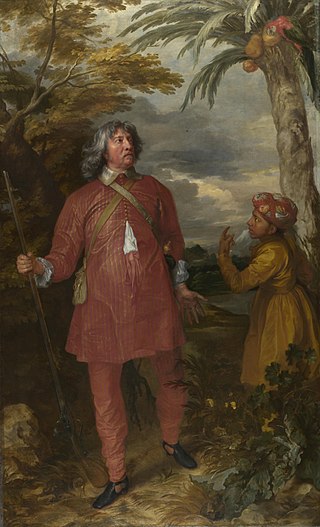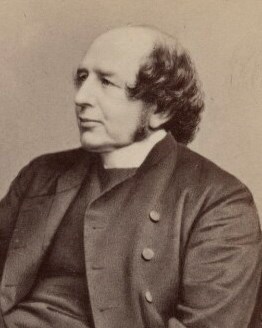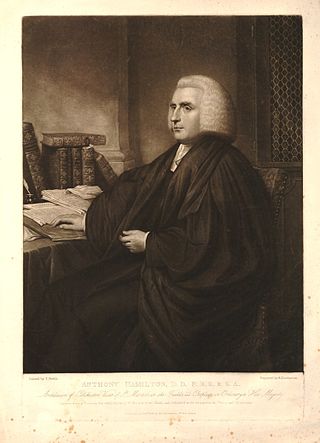Vincent Alsop was an English Nonconformist clergyman. His Mischief of Separation and Melius Inquirenduni became landmarks in the history of religious nonconformity.

Hugh le Despenser, sometimes referred to as "the Elder Despenser", was for a time the chief adviser to King Edward II of England. He was created a baron in 1295 and Earl of Winchester in 1322. One day after being captured by forces loyal to Sir Roger Mortimer and Edward’s wife, Queen Isabella, who were leading a rebellion against Edward, he was hanged and then beheaded.

Admiral William Feilding, 1st Earl of Denbigh was an English naval officer and courtier.

Sir Edward Montagu of Boughton, Hanging Houghton and Hemington in Northamptonshire was an English lawyer and judge in the time of Henry VIII and Edward VI. He was Chief Justice of the King's Bench from 1539 to 1545 and Chief Justice of the Common Pleas from 1545 to 1553.
The Venerable William Hutchins was an English churchman and academic, a Fellow of Pembroke College, Cambridge. Hutchins was born in Ansley, Warwickshire, England, second son of vicar of Ansley, Rev. Joseph Hutchins.

Peter Courtenay was Bishop of Exeter (1478–87) and Bishop of Winchester (1487-92), and also had a successful political career during the tumultuous years of the Wars of the Roses.

Walter Kerr Hamilton was a Church of England priest, Bishop of Salisbury from 1854 until his death.

William Richard Hamilton, FRS, was a British antiquarian, traveller and diplomat.

John Kaye was an English churchman.
Alumni Cantabrigienses: A Biographical List of All Known Students, Graduates and Holders of Office at the University of Cambridge, from the Earliest Times to 1900 is a biographical register of former members of the University of Cambridge which was edited by the mathematician John Venn (1834–1923) and his son John Archibald Venn (1883–1958) and published by Cambridge University Press in ten volumes between 1922 and 1953. Over 130,000 individuals are covered, with more extended biographical detail provided for post-1751 matriculants.
William Scott (1813–1872) was an English clergyman, a leading High Church figure of his time.
Edward William Terrick Hamilton was a British businessman and politician who spent fifteen years as a pastoralist in New South Wales.

Anthony Hamilton (1739–1812) was an Anglican priest, Archdeacon of Colchester from 1775.
Edmund Outram was Archdeacon of Derby from 1809 until his death.

Walter Durnford was an English academic.
William Crawley was a long serving 19th-century Welsh Anglican priest, most notably Archdeacon of Monmouth for over forty years.
Robert Hall, D.D. was an Anglican priest in England during the 17th century.
Richard Butler was Archdeacon of Northampton from 9 July 1611 until his death. Butler was among the earliest Arminians, along with John Buckeridge, Benjamin Carier, and Richard Neile.
This page is based on this
Wikipedia article Text is available under the
CC BY-SA 4.0 license; additional terms may apply.
Images, videos and audio are available under their respective licenses.








